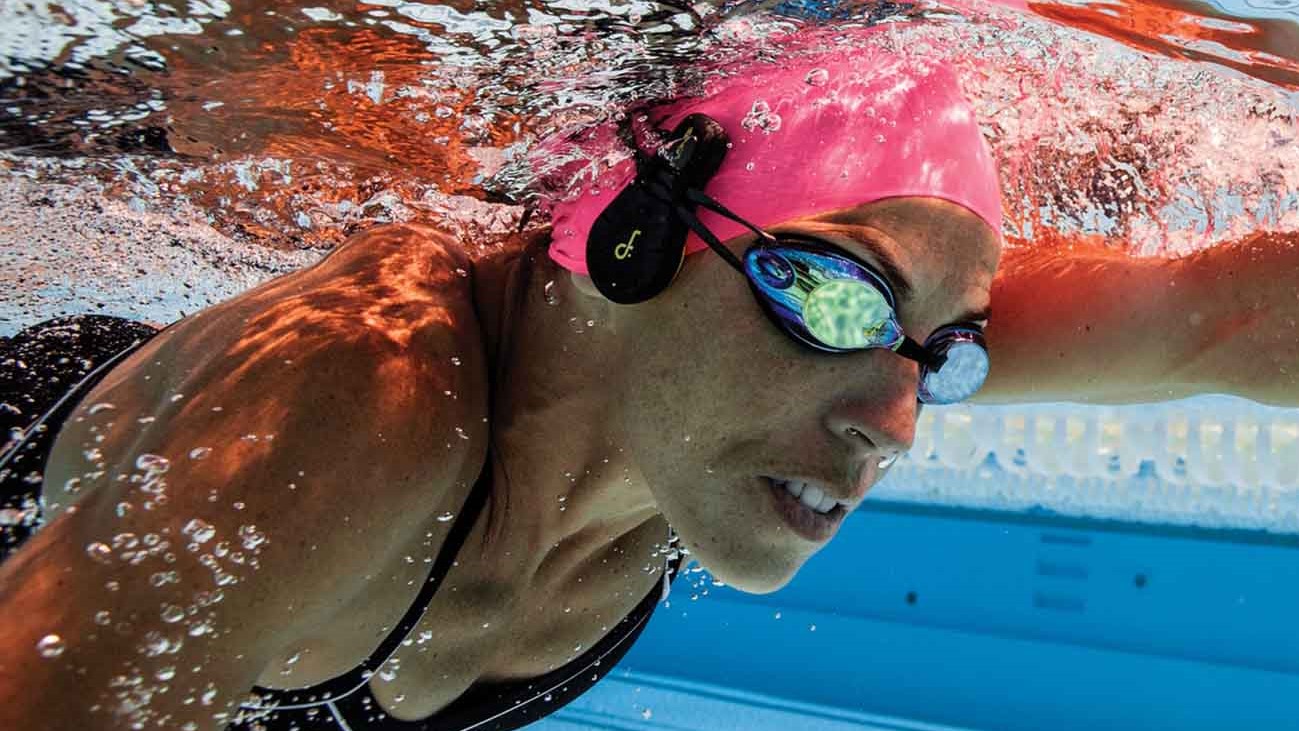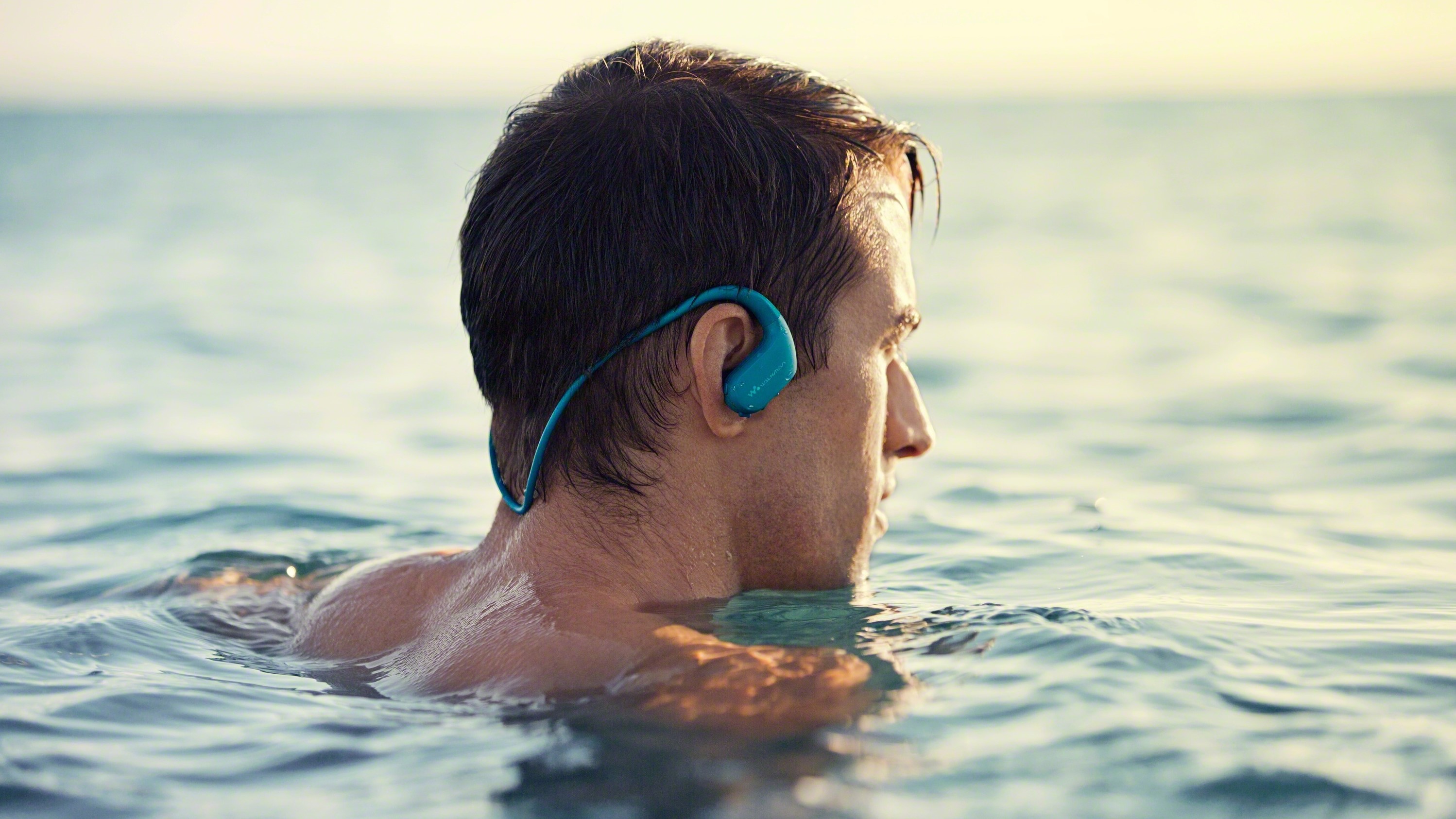Waterproof headphones vs water-resistant headphones
Here is how to get the right type of waterproof headphones for you

Are waterproof headphones the same thing as water-resistant headphones? Do you need fully waterproof headphones for sports, or are you better off getting a pair of water-resistant buds for cheaper? How can you tell which headphones are waterproof and which are water-resistant? And, as a matter of fact, what's IP rating?
These are some of the questions we'll try to find an answer to in this 'waterproof headphones vs water-resistant headphones' article. It's good to know the difference because even though the best waterproof headphones have been immensely popular among runners, cyclists and swimmers, they aren't always a better choice than waterproof running headphones.
Let's dive in.
What’s IP rating?
The ‘IP’ in IP rating stands for ingress protection, and this number represents how effectively a product can keep foreign objects out of its casing. The IP rating is made up of two numbers: the first digit refers to solid objects and the second to liquids. Often, headphones have an IP rating with an ‘X’ for the first digit, meaning the product hasn’t been rated for solids, only liquids.
The highest IP rating any product can get is IP68, where ‘6’ means the construction is entirely dust-tight and ‘8’ that it can be completely submerged in water for a continuous period of time. Most waterproof headphones are either IPX7, or IPX8 rated to ensure you can perform any water-based activities with them without having to worry about busting the buds.

Are water-resistant headphones any good?
Is it worth getting water-resistant headphones with a rating below IPX7? Yes, in most cases, you don’t need buds that can be completely submerged in water. Even IPX4-rated headphones can usually be used for sweaty workouts and even in the rain; as long as you don’t submerge them in water or get them thoroughly soaked, they should be able to work fine.
Another important factor is sound quality. Most water-resistant cans are the bone-conduction headphones variety, and those produce sound differently from your ‘normal’ buds – by resonating your cheekbones, no less. On the other hand, they often leave the ears open, so you are more aware of your surroundings; hence why runners often opt-in for these kinds of headphones. For the best sound quality, decent water-resistant headphones are your best option.
Sign up for breaking news, reviews, opinion, top tech deals, and more.

Do you need waterproof headphones?
Knowing all this, is there a point in getting fully waterproof headphones? Absolutely, especially if your preferred activity is water-based. Swimmers, triathletes, surfers and the likes would want their buds to be fully immersible in water to ensure they can be used more than once.
Have you got a pair of headphones but aren't sure how waterproof they are? Your best option is to check the manufacturer's website for the IP rating. Most sports headphones have an IP rating of IPX4 or IPX5, but some can go as high as IPX8. that said, water-tightness can change over time, and it very much depends on how you treat the buds when you use them.
If force is applied to the headphones – e.g. you step on them, or they fall from somewhere high – that might change the structure of the casing, potentially compromising the water resistance of the buds. Sadly, there is no way of telling when this happens, so your best bet is to look after your headphones as much as you can.
Waterproof headphones vs water-resistant headphones: which one should you get?
Which headphones to get depends on what you need them for. People who prefer working out in gyms won’t need water-resistant headphones; similarly, runners in urban environments might prefer waterproof headphones that leave their ears open (sweating + heavy traffic).
Swimmers and people who spend a lot of time in the water will want water-resistant headphones. We strongly recommend reading through our waterproof headphones guide before making a purchase, though, as these headphones are not without caveats. For example, some can only play stored music underwater, so you must have a collection of MP3 songs if you want to listen uninterrupted in the pool.
Matt is a prolific fitness writer who covers everything from running shoes and watches to home weights and multi-gyms, You can often find him eating some sort of rice dish straight out of a plastic container, staring at an empty word document. When he isn’t writing fitness news, reviews and features for T3, TechRadar or Fit&Well, he’s probably out testing running shoes (wearing four fitness trackers simultaneously) or doing home workouts in his tiny flat.
